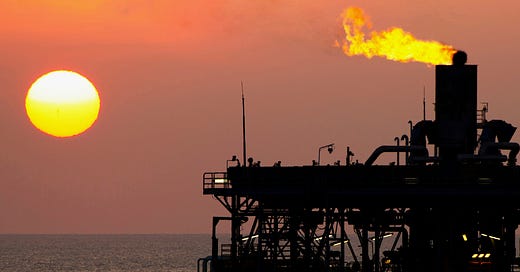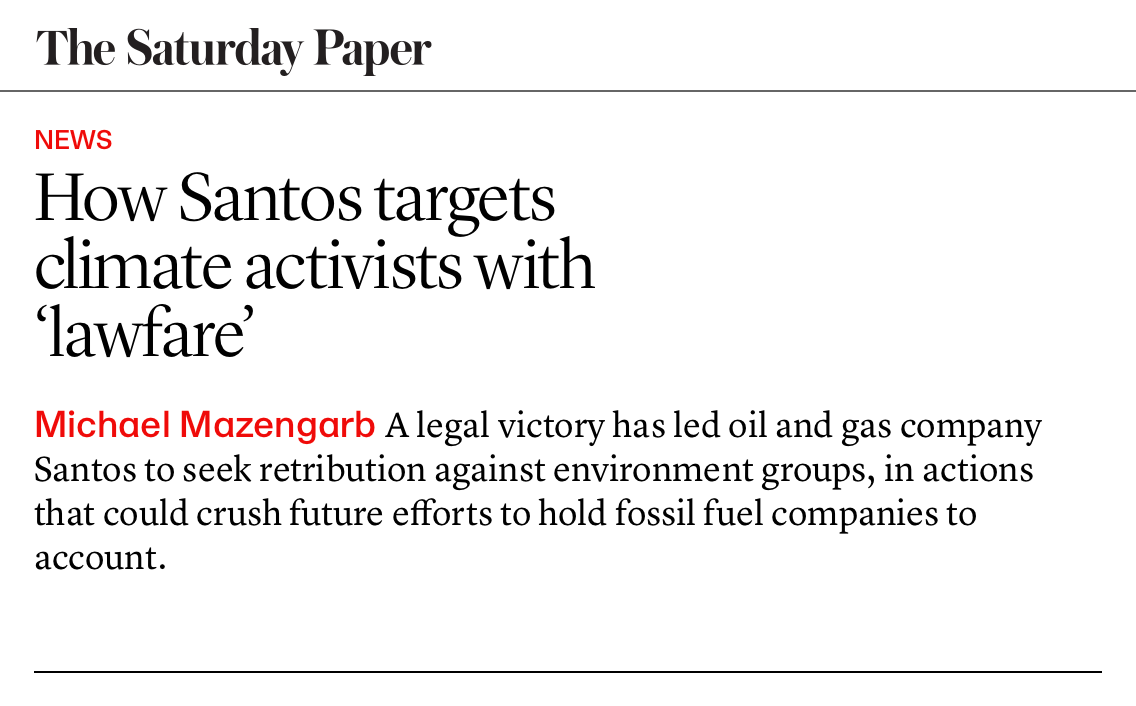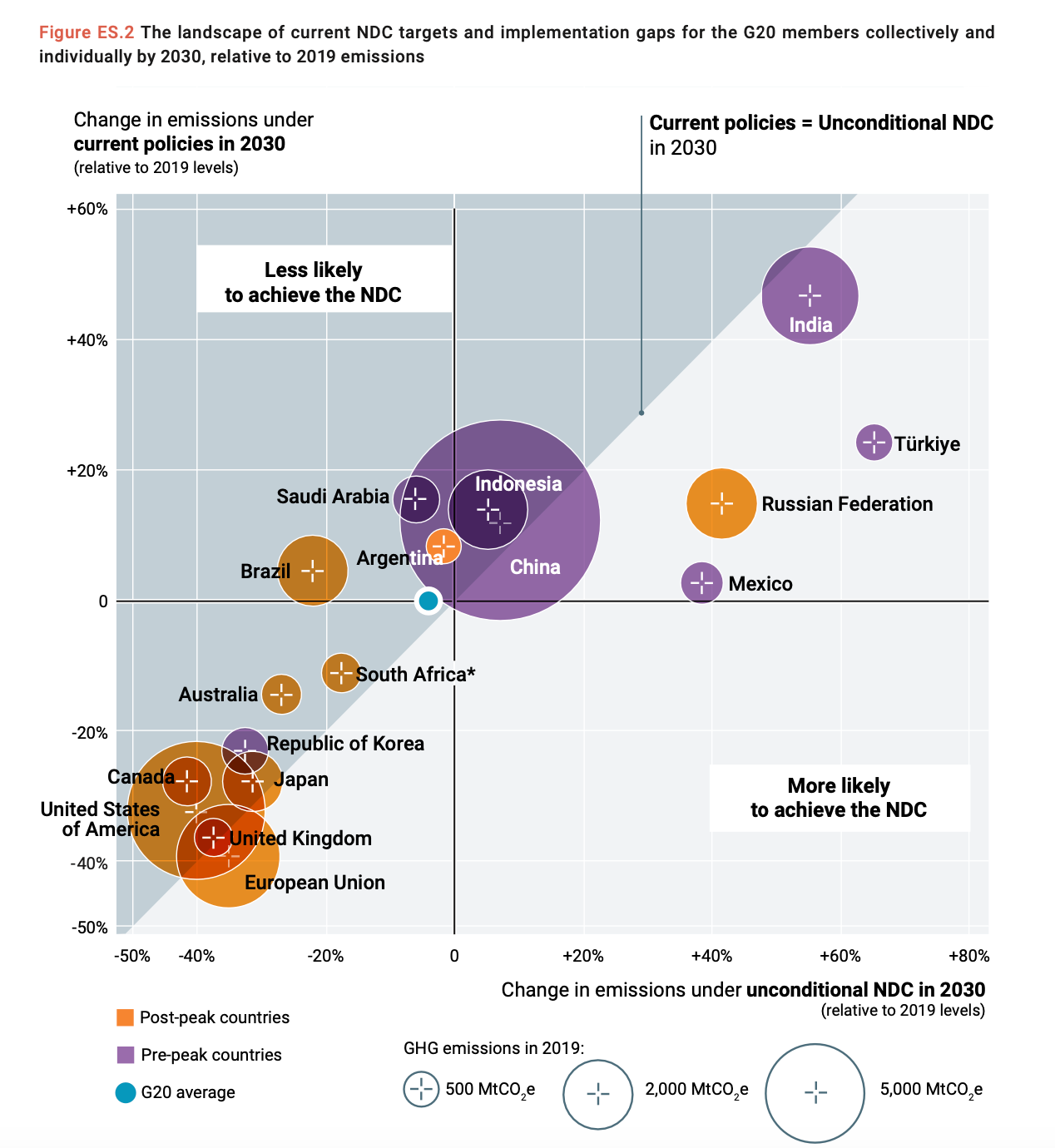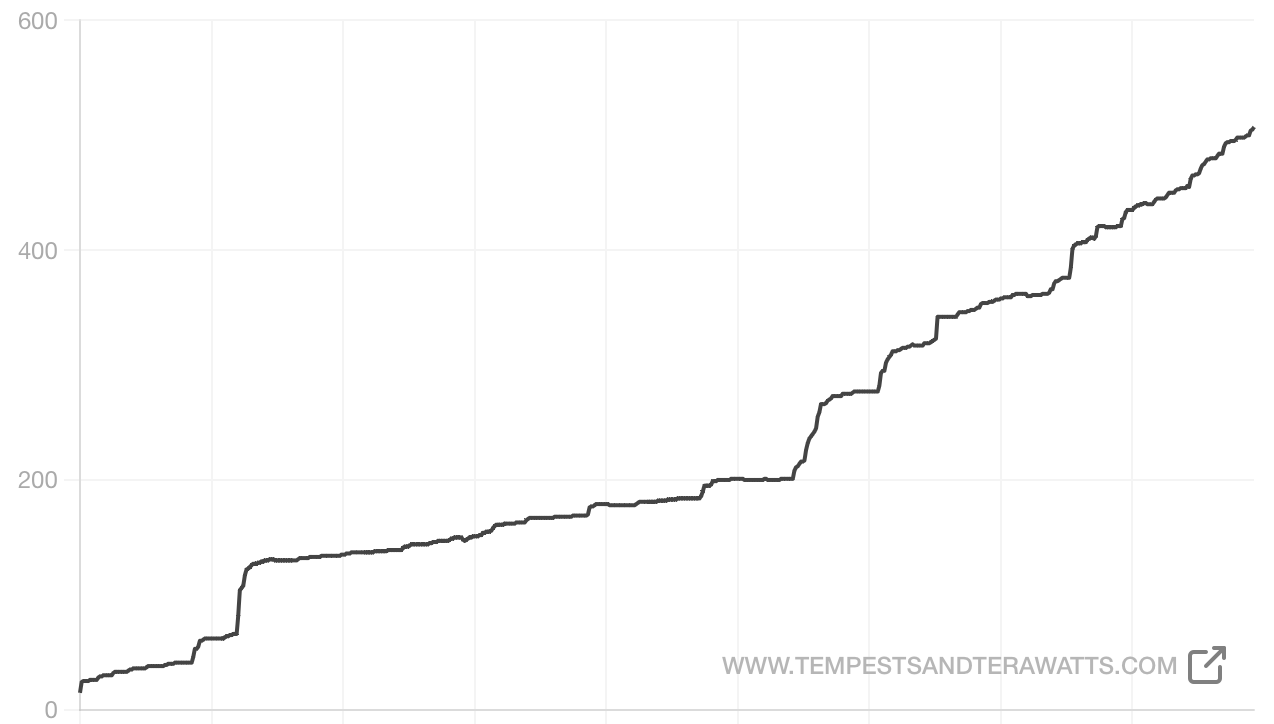The Saturday Paper, Emissions Gap Report and a Tempests and Terawatts milestone
Santos is using lawfare in an attempt to crush the Australian climate movement. Meanwhile, countries made net zero progress towards solving the climate crisis last year.
I have an article in today’s The Saturday Paper: ‘How Santos targets climate activists with ‘lawfare’.
The article explores the SLAPP tactics (‘Strategic Lawsuit Against Public Participation’) being deployed by fossil fuel giant Santos’ legal team - lawyers from aggressive American law firm Quinn Emanuel - against the Environmental Defenders Office and several Australian environment groups in the wake of the unsuccessful Munkara case.
The story is the product of conversations with many concerned members of Australia’s climate movement - who view Santos’ heavy-handed tactics as an attempt to crush opposition to fossil fuel projects - and a deep dive into the case's procedural history.
Please check it out:
A lost year of climate action
This week, the United Nations Environment Program released its annual Emissions Gap Report, detailing the divide between current climate targets and policies and what needs to be done to limit global warming to ‘safer’ levels.
The 2024 edition of the report provides a pretty damning assessment of global climate progress. It found that we must achieve emissions reductions of 42 per cent by 2030 and 57 per cent by 2035 to remain on track to keep warming to 1.5°C.
And yet:
“The emissions gaps in 2030 and 2035 have remained unchanged since last year’s assessment, as there have been no submissions of new NDCs [climate targets] with significant implications for global emissions, no updates to the quantifications of their implications, and no updates to the least-cost pathways.”
and
“Global greenhouse gas emissions set a new record of 57.1 GtCO2e in 2023, a 1.3 per cent increase from 2022 levels.”
There has never been more urgency in calls to act on the climate crisis. Scientists continue to warn people about the rapidly closing window to act. And yet, we achieved net-zero progress in 2023.
According to the report, if all countries meet their current emissions targets, the world will warm by a ‘debilitating’ 2.6 to 2.8°C. However, because the policies currently in place are insufficient to meet those targets, the UNEP says that “current policies will lead to a catastrophic temperature rise of up to 3.1°C”.
Countries must set stronger targets and implement stronger policies to meet those targets. This includes Australia, which the UNEP found was at risk of missing its existing 2030 emissions reduction target.
A Tempests and Terawatts milestone
This past week, Tempests and Terawatts passed the 500 subscriber mark, marking a milestone that exceeded my expectations when I first started the Substack. Unsurprisingly, growth is higher when I post more consistently, which is doubly encouraging.
If you’re a subscriber - thank you!
Please consider supporting these other excellent sources of analysis on all things climate and energy.
Drilled by Amy Westervelt (and a whole bunch of excellent climate journalists)
Raising Hell by Royce Kurmelovs
Royce authored the recently published book Slick, a deep dive into how Australia’s oil companies tried to block climate action.








